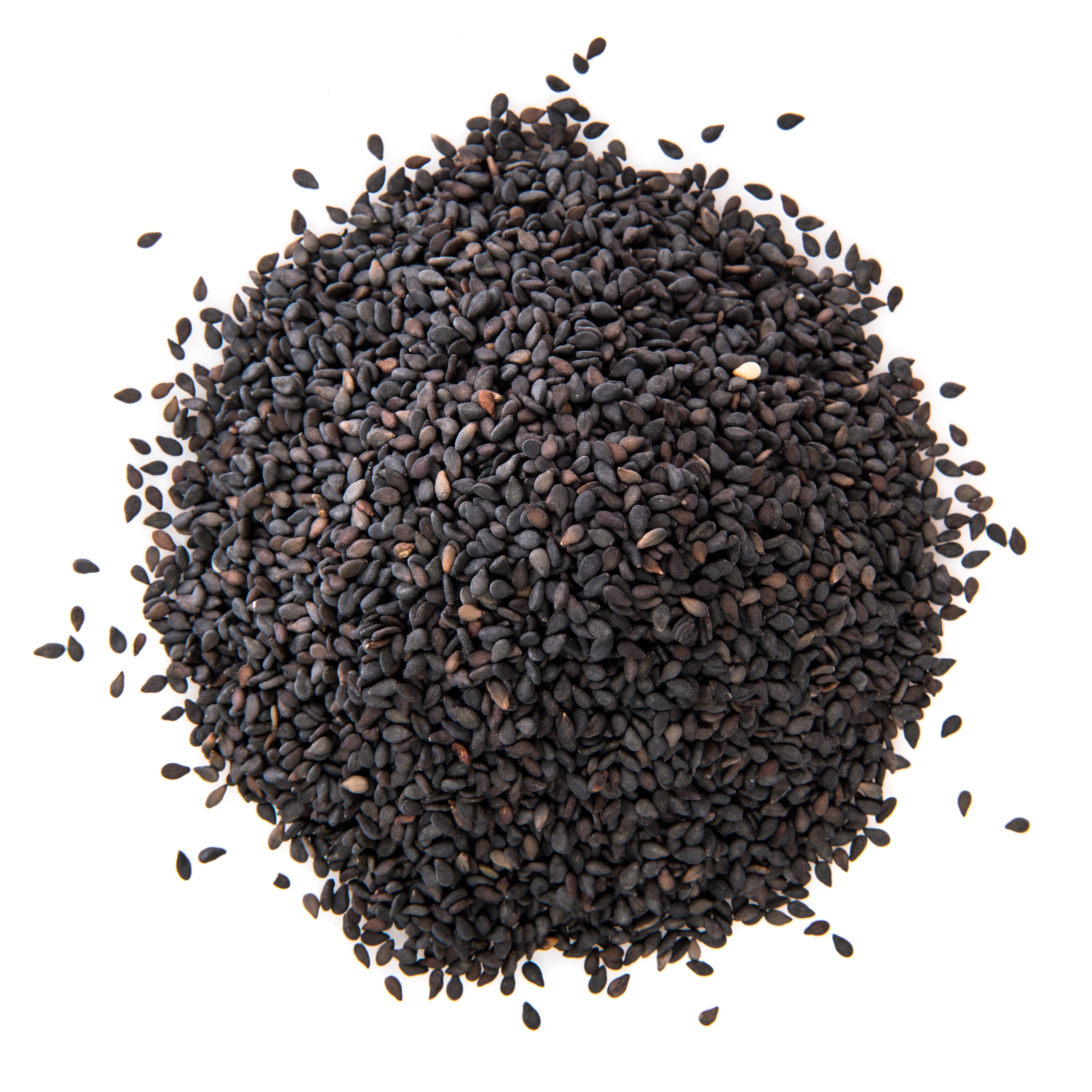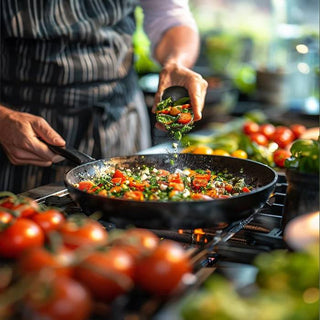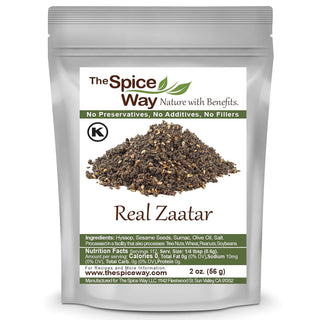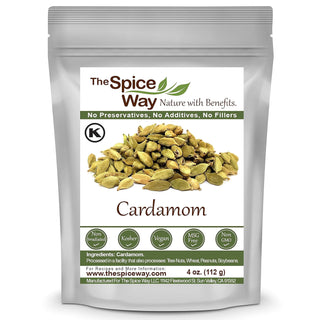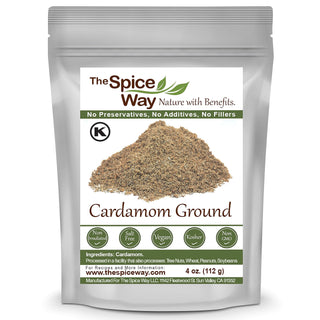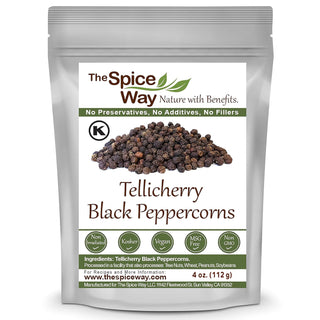Nigella seeds, often referred to as black cumin, black seeds, or kalonji, are small, black, crescent-shaped seeds derived from the Nigella sativa plant. These seeds have been treasured for centuries not only for their unique flavor but also for their wide range of medicinal and culinary uses.
Appearance and Taste
Nigella seeds are tiny, black, and angular. Despite their small size, they pack a punch when it comes to flavor. They have a slightly bitter, peppery taste with hints of onion, oregano, and nutmeg, making them a versatile spice in a variety of dishes.
Culinary Uses
Nigella seeds are widely used in cooking across the Middle East, India, and North Africa. Some common culinary uses include:
-
Breads and pastries: Sprinkled on naan, flatbreads, and bagels.
-
Curries and stews: Adds a subtle bitterness and complexity to Indian and Middle Eastern curries.
-
Pickles and condiments: Enhance the flavor of pickled vegetables and sauces.
-
Vegetable dishes: Used to season roasted or sautéed vegetables.
The seeds can be used whole or ground, and they are often toasted lightly to release their aromatic oils.
How to Use Nigella Seeds?
Here are practical tips for incorporating nigella seeds into your daily routine:
-
In cooking: Sprinkle over bread or mix into spice blends like garam masala.
-
As a tea: Steep a teaspoon of seeds in hot water for a soothing herbal tea.
-
As oil: Nigella seed oil can be used for salad dressings or applied topically for skin and hair benefits.
Storage Tips
To preserve the flavor and potency of nigella seeds:
-
Store in a cool, dark place.
-
Keep them in an airtight container.
-
Avoid grinding in bulk; freshly ground seeds provide the best aroma and taste.
Nigella Seeds vs. Black Cumin
Nigella seeds are sometimes confused with black cumin (Bunium persicum) or regular cumin. While all are used in cooking, nigella seeds are distinct in taste, aroma, and health benefits. Always look for the crescent-shaped, black seeds to identify true nigella seeds.
Nigella Seed Oil
The oil extracted from Nigella seeds is particularly potent. Known as black seed oil, it contains antioxidants, fatty acids, and thymoquinone, making it a popular ingredient for both internal and external use:
-
Internal use: Often taken as a supplement to support immunity, digestive health, and energy levels.
-
External use: Applied to hair to strengthen follicles, reduce hair loss, and add shine; applied to skin to soothe irritation and improve complexion.
Black seed oil is available in capsule form, as a liquid, or mixed into cosmetic products.
Growing Nigella Seeds
For those interested in cultivating nigella seeds:
-
Nigella sativa is an annual flowering plant that grows well in well-drained soil and full sun.
-
The plant produces delicate, pale blue or white flowers, which later develop into seed pods.
-
Once the pods mature and dry, the seeds are harvested and either used whole or ground into powder.
Home gardeners often enjoy growing nigella for both beauty and culinary use, as the plant also has attractive ornamental flowers.
Nigella Seeds in Modern Cuisine
Modern chefs and home cooks are rediscovering nigella seeds for their unique flavor and visual appeal. Some creative uses include:
-
Sprinkled on avocado toast for a savory twist.
-
Mixed into salad dressings for a nutty, slightly bitter note.
-
Added to roasted nuts or seeds for extra flavor.
-
Infused into sauces and dips, such as hummus or yogurt-based dips.
Because of their distinct flavor, a little goes a long way, making nigella seeds both a gourmet and practical addition to the pantry.
Precautions
While nigella seeds are generally safe for most people, a few precautions should be kept in mind:
-
Pregnancy and breastfeeding – Consult a healthcare provider before use, as high doses may have effects.
-
Allergies – Rarely, some individuals may experience allergic reactions.
-
Medication interactions – People taking blood thinners or certain medications should consult their doctor.
Buying Nigella Seeds
When purchasing nigella seeds, look for:
-
Whole, black seeds rather than crushed or powdered for a longer shelf life.
-
Organic or unprocessed seeds to avoid additives or contaminants.
-
Freshness – Nigella seeds, have a subtle aroma; if they smell musty or weak, they may be old.
Nigella Seeds Into Your Diet
Adding nigella seeds to your diet can be a simple and enjoyable experience. Here are some practical ways:
-
Breakfast: Sprinkle over oatmeal, yogurt, or smoothie bowls for added flavor and nutrients.
-
Baking: Add to breads, rolls, or crackers to enhance texture and taste.
-
Cooking: Use in curries, lentil dishes, roasted vegetables, or rice dishes to introduce a subtle, aromatic flavor.
-
Salads and Dressings: Lightly toast the seeds and add to salads or mix into olive oil for a homemade dressing.
-
Beverages: Brew seeds in hot water as a warming tea with honey or lemon.
Nigella Seeds as a Superfood
In recent years, nigella seeds have gained recognition as a superfood due to their high nutrient content. They are rich in:
-
Essential fatty acids – Promote heart and brain health.
-
Antioxidants – Protect the body from oxidative stress.
-
Vitamins and minerals – Including calcium, iron, potassium, and zinc.
-
Protein and fiber – Supporting digestion and satiety.
Consuming nigella seeds in moderation can complement a healthy diet and provide natural support for overall wellness.
Combining with Other Spices
Nigella seeds pair well with a variety of spices, enhancing the flavor and nutritional profile of dishes:
-
With cumin and coriander – Common in Indian curries and spice blends.
-
With sesame seeds – Popular in Middle Eastern breads and pastries.
-
With turmeric – Enhances both flavor and anti-inflammatory benefits.
-
With garlic and ginger – Used in marinades, dressings, and sauces.
Experimenting with these combinations can unlock new flavors and health benefits in everyday cooking.
Nigella Seeds Storage and Shelf Life
To ensure freshness and potency:
-
Store in a cool, dry place away from sunlight.
-
Use airtight glass containers to prevent moisture absorption.
-
Whole seeds last longer than ground seeds; grind only when ready to use for maximum flavor.
-
Properly stored seeds can retain flavor and benefits for up to a year.
Final Thoughts
Nigella seeds are a remarkable spice with a rich history, distinct flavor, and incredible health benefits. Whether you are exploring global cuisines, seeking natural wellness remedies, or simply looking to enhance your cooking, nigella seeds are a versatile and valuable addition. By using them thoughtfully, you can unlock both culinary and medicinal benefits from this tiny, black seed.
FAQs
1. What are nigella seeds used for?
Nigella seeds are used both in cooking and as a medicinal ingredient. They add a slightly bitter, peppery flavor to breads, curries, and vegetables, and their oil or seeds are used in traditional remedies for digestion, immunity, and skin and hair care.
2. Are nigella seeds the same as black cumin?
Yes, nigella seeds are often called black cumin or kalonji, but they are distinct from true cumin. They have a unique flavor and aroma, making them versatile in cooking and health applications.
3. How should I store nigella seeds?
Store nigella seeds in an airtight container in a cool, dark place to maintain flavor and potency. Whole seeds last longer than ground ones, and grinding them fresh before use preserves their aroma.
4. Can Nigella seeds improve health?
Yes, nigella seeds are known for their anti-inflammatory, antioxidant, and immune-boosting properties. They may support digestion, regulate blood sugar, and contribute to overall wellness when used in moderation.
5. How can I use nigella seeds in everyday cooking?
Nigella seeds can be sprinkled on bread, mixed into curries, roasted vegetables, or salads, or brewed as tea. They can also be incorporated into spice blends or used with oils for a flavorful and healthful boost.
